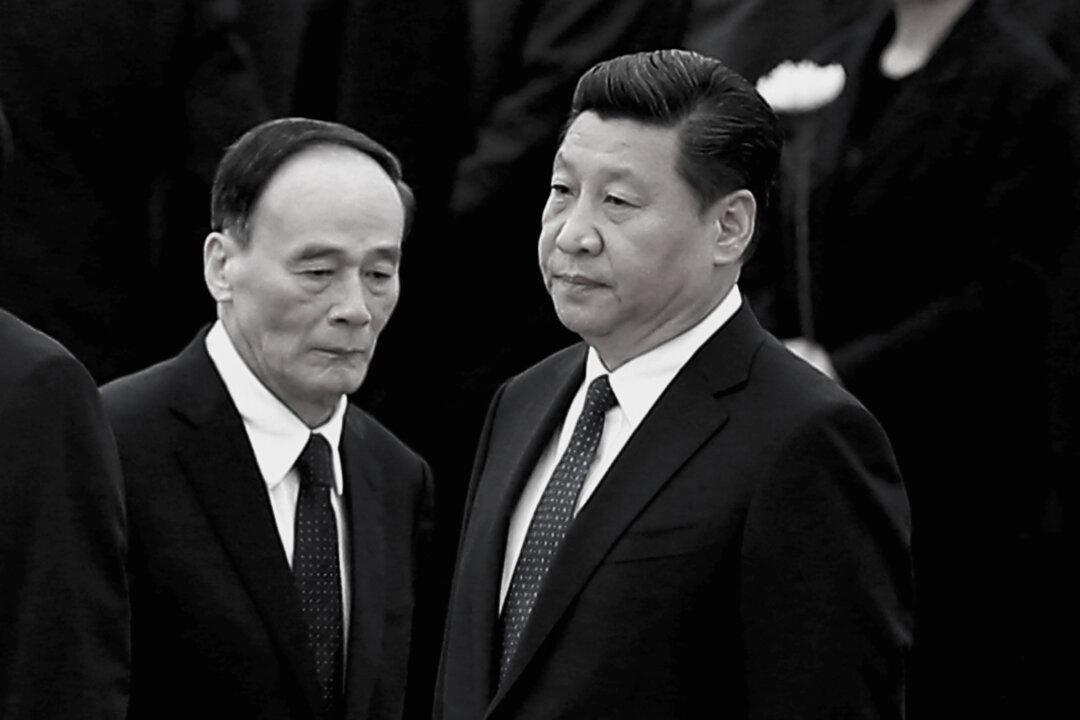
Chinese leader Xi Jinping (R) and former anti-corruption chief Wang Qishan in Beijing on Sept. 30, 2014. Feng Li/Getty Images
Commentary
Chinese vice president Wang Qishan issued a warning during a speech at the opening of the 2020 Bund Summit in Shanghai.
